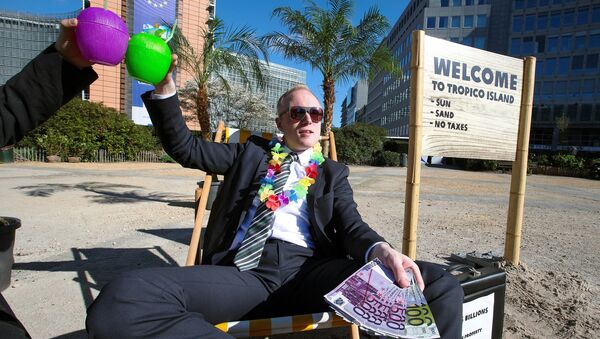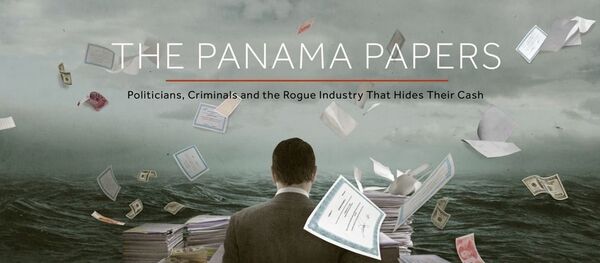On Monday the International Consortium of Investigative Journalists (ICIJ) published a searchable database of nearly 214,000 offshore entities created in 21 jurisdictions, from Nevada to Hong Kong and the British Virgin Islands.
The ICIJ says that what they have published so far is a fraction of what have been dubbed the Panama Papers, more than 11.5 million leaked files that belong to Panama-based law firm and corporate service provider Mossack Fonseca.
On Thursday an anti-corruption summit in London will be attended by officials from 40 countries, and from the World Bank and International Monetary Fund.
One of the signatories of the letter is Dr. Ha-Joon Chang, an institutional economist specializing in development economics, a Reader in the Political Economy of Development at the University of Cambridge and author of the books "23 Things They Don't Tell You About Capitalism," and "Economics: the User's Guide."
He told Radio Sputnik that people who hide money in tax havens are using "financial engineering" to freeload from taxpayers by making up paper companies and using them to avoid tax.
"Individuals and their companies who are using these tax havens are basically freeriding on the rest of humanity. These individuals and companies are making money in one country, using the labor force educated by taxpayers' money, using the roads, ports and other infrastructure provided by public investment and even taking advantage of scientific research and development done in that county and taking that money away to another country where they just park the money."
"What usually happens is that they set up this paper company which charges for bogus services and siphoning off profit and in the country where the real activity was done, the company says 'we haven't made any money.'"
Chang said that the appeal of low taxes for businesses is balanced by the quality of infrastructure and services provided in that country, and so the appeal of areas with little or no tax is limited to the prospect of saving money rather than using the public services to conduct business there.
"If low tax was so good, why doesn't every rich individual move to Guatemala, where the top income tax rate is seven percent? If low corporate income taxes are so good why don't all companies relocate to Paraguay, where the tax rate is ten percent? Of course, these people don't go there, because instead of paying little tax they get rubbish public service."
"Ultimately these tax havens only exist because the rich and the powerful in the world want them to exist."
"It's actually one of the easiest things to change, because we worry about say climate change, we say we have to make a transition to renewable energy. Even if we know we should do that, it'll take years and lots of money to make the transition, whereas these tax havens will cease to exist if say the 20 richest countries declare that any financial transaction involving these non-corporative tax havens will be illegal."




